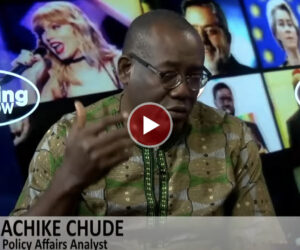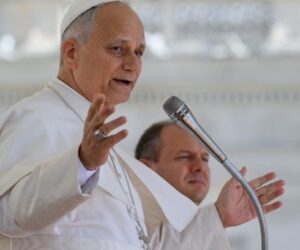
The National President of the Academic Staff Union of Universities (ASUU), Professor Chris Piwuna, has accused the Federal Government of reneging on key agreements reached with the union, declaring that lecturers are fully prepared to resume strike action if necessary.
Speaking on ARISE News on Sunday, Prof. Piwuna said it had become “impossible” for ASUU and the government to find common ground because of what he described as the government’s habitual betrayal and lack of fidelity to agreements.
“You cannot find a common ground when you have a partner who has sworn to be infallible,” he said. “You cannot find a common ground with a government that constantly betrays you — people who say one thing and do the exact opposite.”
He revealed that President Tinubu’s administration had set up the Yayale Ahmed Committee to negotiate with ASUU, and that both parties had reached a collective bargaining agreement covering four key areas — conditions of service, sustainable funding for universities, academic freedom and autonomy, and other governance issues.
“We met with the committee, we negotiated, and we agreed on a lot of issues. Together, we submitted a report to the government in December 2024,” Piwuna explained. “The Minister of Education said he only saw the report in February this year and didn’t act on it until we tightened our strike notice around August. Then, instead of implementing what we agreed on, he produced something entirely different.”
The ASUU President said the union was shocked when the Minister presented a new document “that bore no resemblance” to the negotiated agreement.
“Rather than use the Yayale Ahmed report as the benchmark, he simply decided to add 25 percent to our current salaries and called it an improvement,” he said. “That’s not collective bargaining — that’s imposition. Every academic should just take 25 percent of their current salary — that’s what government is offering before tax. It’s unacceptable.”
Piwuna also criticised the exclusion of lecturers from the federal government’s group life insurance scheme, describing it as discriminatory and inconsistent with earlier agreements.
He dismissed the Minister of Education’s threat to invoke the no work, no pay policy, insisting that ASUU members were ready to make sacrifices to defend the dignity of the academic profession.
“This ‘no work, no pay’ threat is a joke,” Piwuna said. “We’ve travelled that painful road before — it’s excruciating, but we’re ready to go through it again. If fear of no work, no pay makes us accept 25 percent, then we are not worth anything as intellectuals.”
Addressing the government’s claim that ₦50 billion was released to ASUU, the union leader dismissed it as misleading.
“It is shameful for any government to say ₦50 billion has been released for 193 universities — money they can steal in one night,” he said. “Let’s see how far that goes. It’s an insult to the system.”
He explained that ASUU had agreed to forgo part of its earned academic allowances to reduce recurrent disputes, but even then, the government failed to honour the compromise.
“We agreed to sacrifice half of what was due to us — about ₦130 billion — and asked government to pay the other half so we could end the constant fights. They promised ₦50 billion but only released ₦40 billion after arbitrarily cutting 20 percent. Yet, we didn’t protest or go on strike. But now, they’ve left us with no choice,” he stated.
Despite the looming industrial action, Prof. Piwuna expressed deep regret for the effect on students, describing it as a painful but unavoidable consequence of government neglect.
“We feel terrible about how this affects our students,” he said. “But it is strikes that have forced government to build hostels, refurbish laboratories, and improve facilities. If government had respected agreements, there would be no strikes.”
He accused the government of double standards, honouring foreign agreements while neglecting domestic ones that protect Nigerian workers.
“When it comes to treaties with the World Bank or IMF, they are very religious in implementation,” he said. “But when it concerns ILO conventions or agreements that protect workers, they are always eager to skip them.”
Prof. Piwuna reaffirmed that ASUU’s latest decision was final unless the government returned to the negotiation table and implemented the agreed terms.
“We are calling on government to address the outstanding issues. There is no going back,” he warned. “If we must go on strike again to defend public universities, then so be it,”he concluded.
Boluwatife Enome
Follow us on:








